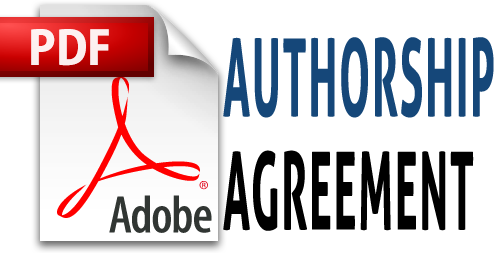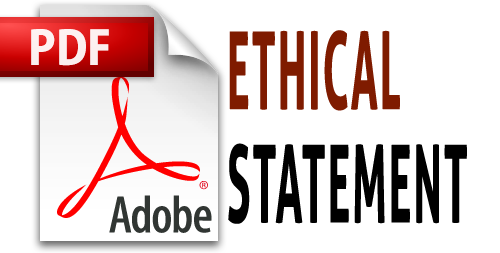STRATEGI PEMANFAATAN E-LEARNING DALAM MENGATASI KETERBATASAN JUMLAH DOSEN
 Rahmi Rivalina(1*)
Rahmi Rivalina(1*)
(1) Pusat Kurikulum dan Perbukuan, Balitbang Kemdikbud
(*) Corresponding Author
 Abstract viewed : 3474
|
Abstract viewed : 3474
|  PDF downloaded : 617
PDF downloaded : 617
Abstract
The increasing number of students demands an increase in the number of lecturers. The addition of qualified lecturers is not easy. One of the effort to overcome this shortage of lectures, Pamulang University started to apply e-learning. This study aims to find out the e-learning strategy as well as the responses of students and lecturers in the utilization of e-learning. The research method is descriptive one. Data collections were done through an interview, direct observation, questionnaire, and documentation study. Based on the result of data processing, it is known that the strategy of e-learning utilization is done through some stages, such as: preparation of facilities and infrastructure (lecture building, ICT facilities, laboratory facilities, computerization in academic affairs, and e-learning technology), strong leadership policy support, and training and socialization to students and lecturers. Students’ responses to e-learning models have not been optimally yet due to the limitations of socialization, content that has not been packaged interestingly and meaningful, students’ relatively low reading interest, curiosity and low reading interest, curiosity and low student motivation, and not conducive learning climate. Responses of lecturers besides not yet optimally in preparing the communicative and inspirational content, the lecturer is not used in utilizing e-learning technology. Although the implementation of e-learning still has some weaknesses/constraints, but to some extent, the utilization of e-learning has been able to help the shortage of lecturers.
Abstrak
Meningkatnya jumlah mahasiswa menuntut adanya peningkatan jumlah dosen. Penambahan jumlah dosen yang berkualitas ternyata tidak mudah. Salah satu upaya untuk mengatasi hal tersebut, Universitas Pamulang menerapkan e-learning. Penelitian ini bertujuan untuk untuk mengetahui strategi pembelajaran e-learning dan respon dari mahasiswa maupun dosen dalam pemanfaatan pembelajaran elearning. Metode penelitian adalah deskriptif. Pengumpulan data dilakukan melalui wawancara, pengamatan langsung, kuesioner, studi dokumentasi. Hasil pengolahan data menunjukkan bahwa strategi pemanfaatan e-learning dilakukan melalui tahapan: persiapan sarana dan prasarana (gedung kuliah, fasilitas TIK, laboratorium, komputerisasi di bidang akademik, dan teknologi e-learning), dukungan kebijakan pimpinan yang kuat, serta pelatihan dan sosialisasi kepada mahasiswa dan dosen. Respon mahasiswa terhadap pembelajaran e-learning belum optimal sebagai akibat keterbatasan mensosialisasi, konten yang belum menarik dan bermakna, minat baca rendah, rasa ingin tahu dan motivasi mahasiswa yang rendah, dan iklim yang belum mendukung. Respon dosen disamping belum optimal menyiapkan konten yang komunikatif dan inspirati juga karena belum terbiasa dalam memanfaatkan teknologi e-learning. Sekalipun memiliki beberapa kekurangan/ kelemahan namun pemanfaatan e-learning tersebut sudah dapat membantu mengatasi kekurangan tenaga dosen.
Keywords
References
Agyei, D. D., & Voogt, J. M. 2011. Exploring the potential of the will, skills, tool model in Ghana: Predicting prospective and practicing teachers’ use of technology.Computers & Education, 56(1), 91-100.
Amadea, Monica. Dahesihsari, Rayini. 2015. Hambatan Dalam Pengabdosian E-Learning Pada Pengajar Perguruan Tinggi se Jabodetabek. Jurnal Kependidikan Widya Darma. Vol. 28. No. 1.
Al-Ammary, Jaflah. Mohammed, Zainab. and Omran, Fatima. 2016. E-Learning Capability Maturity Level in Kingdom of Bahrain. TOJET: The Turkish Online Journal of Eduational Technology – April 2016, volume 15 issue 2
Ali, W. 2012. Factors Affecting Nursing Student‘S Satisfaction with E-Learning Experience in King Khalid University, Saudi Arabia. International Journal of Learning & Development, 2(2), 201-15.
Barbara, S., Wagner P., at all. 2008. Vienna E-Lecturing (VEL): Learning How to Learn Selft-Regulated in an Internet-Based Blended Learning Setting. 14 International Journal on e-learning.
Bekele, T. A. 2010. Motivation and Satisfaction in Internet-Supported Learning Environments: A Review. Educational Technology & Society, 13 (2), 116–127.
Bichsel, J. 2013. The State of e-learning in Higher Education: An Eye toward Growth and Increased Access. Louisville, CO: Educause Center for Analysis and Research.
Burke, D., & Pieterick, J. 2010. Giving students effective written feedback. McGraw-Hill Education (UK).
Cheng, K. H., Liang, J. C., & Tsai, C. C. 2015. Examining the role of feedback messages in undergraduate students’ writing performance during an online peer assessment activity. The Internet and Higher Education, 25, 78-84.
Connellan, T. K. 2002. Bringing out the best in others!: 3 keys for business leaders, educators, and parents. Austin, TX: Bard Press.
Chaeruman, Uwes Anis. 2013. Merancang Model Blended Learning.Jurnal Teknodik Vol.17.No.4. Jakarta. Terakreditasi LIPI.
Dokumen berupa Surat UND Pelatihan E-learning untuk Dosen Unpam, 2016.
Hardaker, G., & Singh, G. 2011. The Adoption and Diffusion of eLearning in UK Universities: A Comparative Case Study Using Giddens’s Theory of Structuration.Campus Wide Information Systems, 28(4), 221-233. http://dx.doi.org/10.1108/10650741111162707
Herrington, J., Reeves, T. C., & Oliver, R. 2010. A guide to authentic e-learning. New York: Routledge.
Jennex, M.E. 2005. Case studies in Knowledge Management. Idea Group Publishing: Hersley.
Koehler, M.J., Mishra, P., & Yahya, K. 2007. Tracing the development of teacher knowledge in a design seminar: Integrating content, pedagogy and technology. Computers and Education, 49(3), 740-762
Kotzer1, Shulamit dan Elran2, Yossi. 2012. Learning and Teaching with Moodle-Based E-Learning Environments, Combining Learning Skills and Content in the Fields of Math and Science & Technology 1st Moodle Research Conference. Proceeding. Heraklion, Crete-Greece.
Khan, B., 2005. Managing e-Learning Strategies: Design, Delivery, Implementation and Evaluation. USA: Idea Group Inc.
---------------. 2005. Managing e-Learning Strategies: Design, Delivery, Implementation and Evaluation. USA: Idea Group Inc.
Lin, Hong-Min, Chen, Wan-Ju and Nien, Shu-Fen. 2014. The Study of Achievement and Motivation by e-Learning–A Case Study. International Journal of Information and Education Technology, Vol. 4, No. 5, October 2014.
Liu, Y., & Wang, H. 2009. A Comparative Study on e-learning Technologies and Products: from the East to the West. Systems Research & Behavioral Science, 26(2), 191-209.
Macharia, J. K., & Pelser, T. G. 2012. Key factors that influence the diffusion and infusion of information and communication technologies in Kenyan higher education. Studies in Higher Education, (ahead-of-print), 1-15.
Marc, J. R. 2002. Book review: e-learning strat- egies for delivering knowledge in the digital age. Internet and Higher Education, 5, 185-188.
Means, B., Toyama, Y., Murphy, R. F. and Baki, M. 2009. Evaluation of evidencie-based practices in online learning: A meta-analysis and review online learning studies, Washington, U.S. Department of Education. Ristek Dikti, 2016. Mendongkrak Mutu Perguruan Tinggi Indonesia. 2016. http://kelembagaan.ristekdikti.go.id/index.php/2016/05/09/mendongkrak-mutu-per-guruan-tinggi-indonesia/ Diakses 24 Januari 2016
Moolman, H. B., & Blignaut, S. 2008. Get set! e-ready, ... e-learn! The e-readiness of warehouseworkers.Educational Technology & Society, 11(1), 168-182.
Moore. Joi L., Dickson-Deane, Camille., Gaylen. Krista. 2011. E-Learning, Online Learning, and Distance Learning Environments: Are they the Same? Internet and Higher Education 14 (2011) 129–135.
Elsevier Munir, 2010, Penggunaan Learning Management System (LMS) Di Perguruan Tinggi: Studi Kasus Di Universitas Pendidikan Indonesia Cakrawala Pendidikan, Februari 2010, Th. XXIX, No. 1. Bandung.
---------2010, Penggunaan Learning Management System (LMS) Di Perguruan Tinggi: Studi Kasus Di Universitas Pendidikan Indonesia. Cakrawala Pendidikan, Februari 2010, Th. XXIX, No. 1. Bandung.
Nurgroho, Widianto S. Ph.D. 2014. E-learn-ing Di Perguruan Tinggi Belum Terinisiasi Sistematis. http://www.antaranews.com/berita/455999/e-learning-di-perguruan-tinggi-belum-terinisiasi-sistematis, Seminar e-learning di kampus UI, Depok, Jawa Barat. Senin, 29 September 2014. Diakses 14 Juni 2016.
Observasi 2016. Pelatihan Dosen Unpam tentang pemanfaatan aplikasi e-learning yang diselenggarakan Unpam.
Observasi 2016. Praktek bersama Dosen Senior dan Yunior di prodi tentang Aplikasi e-learning.
Organization for Economic Co-Operation and Development (OECD). 2005. E-learning in TertiaryEducation.PolicyBriefs. http://www.oecd.org/edu/ceri/35991871.pdf. Diakses 1 Februari 2017.
Pande, Deepali, Wadhai, V.M., Thakare, V.M. 2016. E-Learning System and Higher Education. International Journal of Computer Science and Mobile Computing A Monthly Journal of Computer Science and Information Technology ISSN 2320–088X. IJCSMC, Vol. 5, Issue. 2, February 2016. pg.274 – 280.
…………2016. E-Learning System and Higher Education. International Journal of Computer Science and Mobile Computing A Monthly Journal of Computer Science and Information TechnologyISSN 2320–088X. IJCSMC, Vol. 5, Issue. 2, February 2016.
Pannen, Pauline, Prof. Ph.D. 2014. E-learning Di Perguruan Tinggi Belum Terinisiasi Sistematis.http://www.antaranews.com/berita/455999/e-learning-di-perguruan-tinggi-belum-terinisiasi-sistematis, Seminar e-learning di kampus UI, Depok, Jawa Barat. Senin, 29 September 2014. Diakses 14 Juni 2016.
Permendikbud, 2012. Permendikbud No 24 Tahun 2012 tentang Penyelenggaraan Pendidikan Jarak Jauh Pada Perguruan Tinggi Jakarta. Kementerian Pendidikan dan Kebudayaan
Peraturan Menteri Riset, Teknologi Dan Pendidikan Tinggi Republik Indonesia. 2013 Nomor 13 Tahun 2015 Tentang Rencana. Strategis Kementerian Riset, Teknologi, Dan Pendidikan Tinggi Tahun 2015-2019. Jakarta. Kemenristek
Pidato Ketua Yayasan Unpam pada pertemuan-pertemuan resmi tahun 2015.
Pidato Rektor Pada Acara Pembukaan Pelatihan E-learning Untuk Dosen 2016.
Prasojo, Lantip Diat. 2009. Model Manajemen E-Learning Di Perguruan Tinggi.Majalah Ilmiah Pembelajaran. Jurusan Kurikulum dan Teknologi Pendidikan. Fakultas Ilmu Pendidikan. UNY.
Pradnyana, Gede Aditra dan Pradnyana, I Made Ardwi. 2017 Perancangan dan Implementasi Responsive E-learning Berbasis MOODLE untuk Meningkatkan Kualitas Kegiatan Pembelajaran di STMIK STIKOM Indonesia. Jurnal Ilmu Komputer dan Sains Terapan.
Putra, Pramudya Dwi Aristya. 2015. Pengembangan Sistem E-Learning untuk Meningkatkan Ketrampilan Berpikir Kritis Mahasiswa Pendidikan Fisika. Jurnal Fisika Indonesia No: 55, Vol XIX, Edisi Mei 2015 ISSN: 1410-2994.
Ratmilah. 2012. Implementasi Model E-learning sebagai Pendukung Kuliah Pada Jurusan Kependidikan Islam, Fakultas Tarbiyah dan Keguruan UIN Sunan Kalijaga, Yogyakarta Tahun Akademik 2012-2013.
Skripsi. Rovai, Alfred P., Ponton, Michael K., Wight-ing, Mervyn J., Baker, And Jason D. 2007.A Comparative Analysis of Student Motivation in Traditional Classroom and E-Learning Courses. International Journal on E-Learning. 6(3), 413-432
Schmidt, Steven W., Dickerson, Jeremy & Kisling, Eric. 2010. “From Pedagogy to Andragogy: Transitioning Teaching and Learning in the Information Technology Classoom” East Carolina University, USADOI: 10.4018/978-1-61520-694-0.ch004
Schneckenberg, D., Ehlers, U., & Adelsberger H. 2011. Web 2.0 and competence-oriented design of learning-potentials and implications for higher education. British Journal of Educational Technology, 42(5), 747-762. Smedley, J.K. 2010. Modelling the Impact of Knowledge Management Using Technology. OR Insight (2010) 23, pp 233–250. doi:10.1057/ori. 2010.11
Sprenger, M. 2005. How to teach so student remember. Alexandria, Va.: Association for Supervision and Curriculum Development. Retrieved from http://site.ebrary.com/id/10081763
SK Rektor UNPAM Nomor: 66/A/LL/ UNPAM/VIII/2015 tentang Pengesahan Buku Tata Kelola Online Learning Universitas Pamulang, tanggal 14 Agustus 2015.
SK Rektor UNPAM Nomor: 191/A/KP/ UNPAM/II/2016 tentang Pengangkatan Koordinator Kajian Pembelajaran dan E-earning Universitas Pamulang, tanggal 1 Februari 2016.
SK Rektor UNPAM Nomor: 092/A/KP/ UNPAM/II/2016 tentang Pengangkatan Wakil Koordinator Kajian Pembelajaran dan E-learning Universitas Pamulang, tanggal 1 Februari 2016.
Tena, Rosalia Romero., Almenara, Julio Cabero., Osuna, Julio Baroso. 2017. E- Learning of Andalusian University’s Lecturers. Gender TOJET: The Turkish Online Journal of Educational Technology – April 2016, volume 15 issue 2. Copyright © the Turkish Online Journal of Educational Technology
Wawancara dengan Pembantu Rektor 2 Unpam pada tanggal 21 Juli 2016.
Wawancara dengan Koordinator Kajian Pembelajaran dan E-learning Unpam pada tanggal Juli 2016.
Wawancara dengan dosen PPKN Unpam, 2016.
Wicaksono, Vishnuharyo. 2007. Faktor-faktor yang mendukung efektivitas penggunaan E-Learning: Studi kasus pada Papirus. Thesis, Magister Teknologi Informasi UGM, Yogyakarta, 2007.
Zuvic-Butorac, Marta. Roncevic, Nena. Nemcanin, Damir & Nebic, Zoran. 2011. Blended E-Learning In Higher Education: Researchon Students. Issues
Refbacks
- There are currently no refbacks.
Copyright (c) 2017 Rahmi Rivalina

This work is licensed under a Creative Commons Attribution-NonCommercial 4.0 International License.
Kwangsan Indexed By
Kwangsan: Jurnal Teknologi Pendidikan diterbitkan oleh Balai Besar Guru Penggerak (BBGP) Prov. Jawa Timur.
Kementerian Pendidikan dan Kebudayaan
Alamat Redaksi:
Jl. Mangkurejo, Ds. Kwangsan, Sedati - Sidoarjo.
Telp 0318911373 Fax. 0318911392
Email: jurnal.kwangsan@kemdikbud.go.id & jurnalkwangsan@dikbud.belajar.id






























